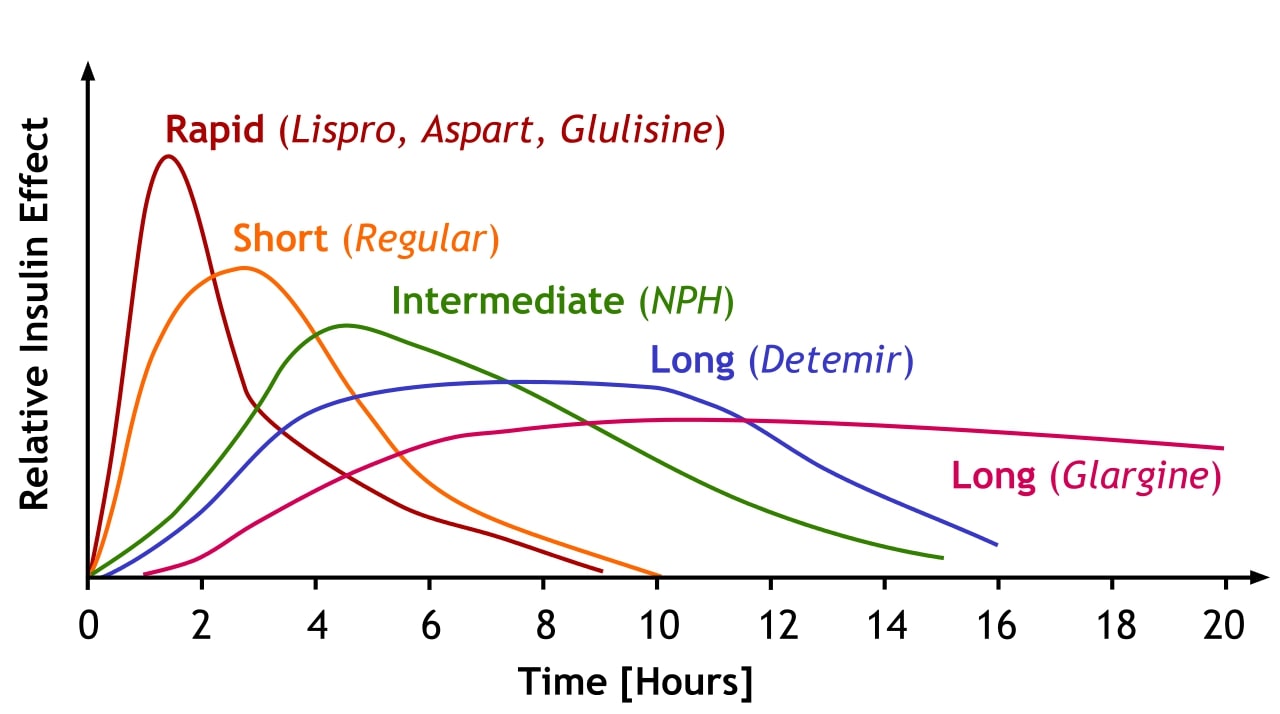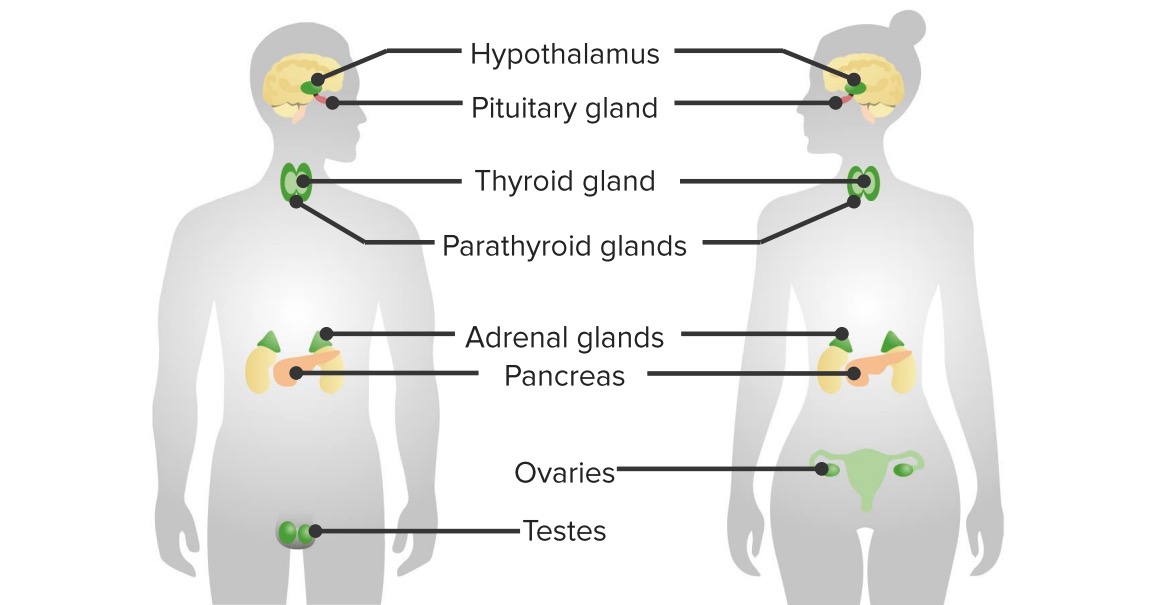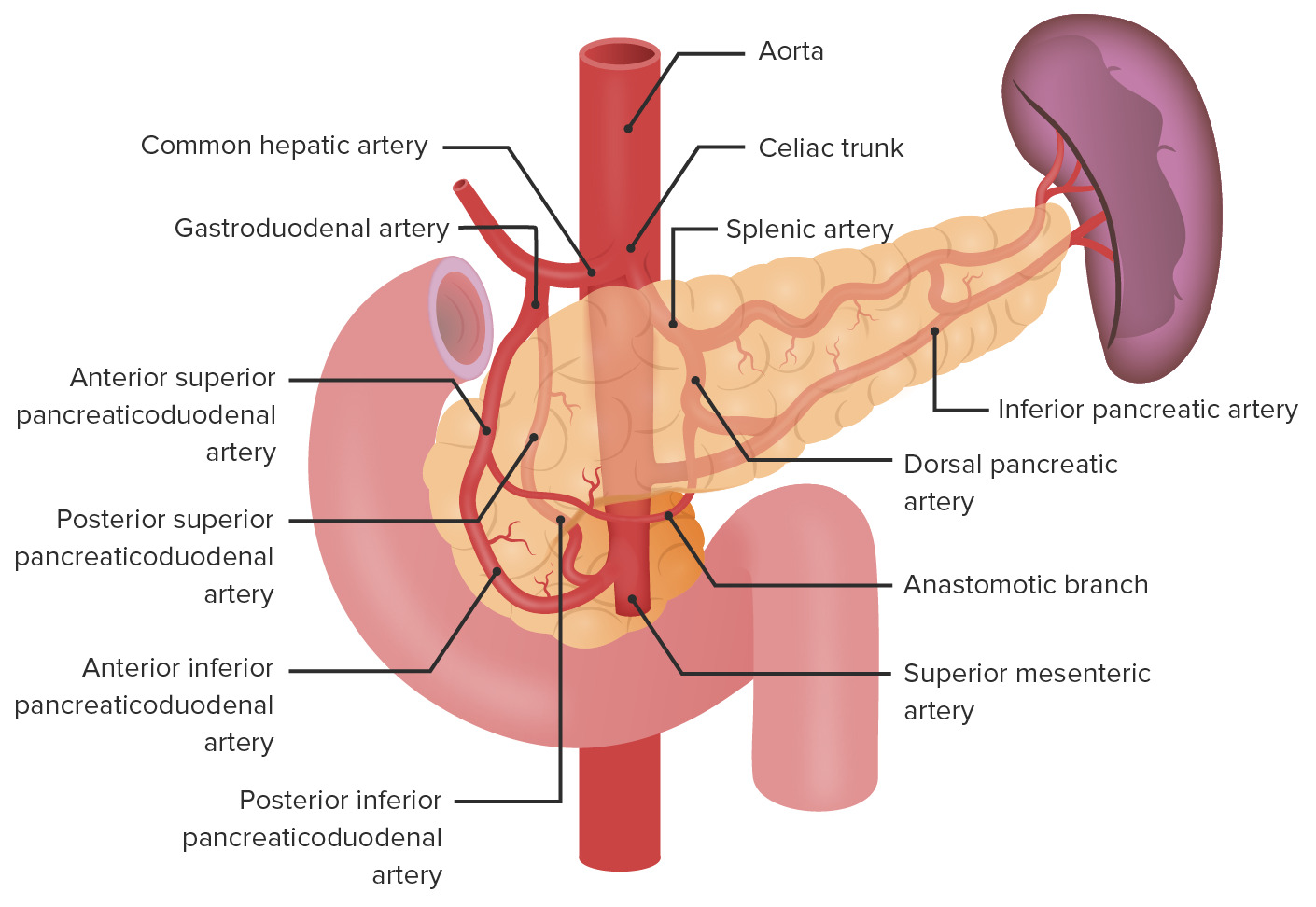Playlist
Show Playlist
Hide Playlist
Glucose Homeostasis – Endocrine Pancreatic Hormones
-
Slides EndocrinePancreaticHormones EndocrinePathology.pdf
-
Download Lecture Overview
00:02 Let’s talk about glucose homeostasis. 00:05 The way that this was set us up is that if you take a look at the picture, on the left will be that which is going to inhibit the release of insulin. 00:20 On the right, that path is going to promote the release of insulin. 00:28 On your left, low blood glucose means fasting or fed? Just simple things that you want to know for language. 00:38 This is fasting state. 00:40 On the right, high blood glucose, this is the fed state. 00:43 So, you already know if you are fasting, you are not going to be releasing insulin, you are going to be releasing glucagon. 00:51 Where does glucagon come from? Alpha Islet cell. 00:54 What does it do? It stimulates the liver to do-to bring about gluconeogenesis so that you can raise your glucose back to normal in your circulation. 01:05 That is the convergent point at the bottom of the picture, that tube that you are seeing there is a blood vessel; in other words plasma. 01:13 On the right, you have fed state. 01:15 So, you had that piece of chocolate, you had that piece of bread, high blood glucose. 01:19 We just got down discussing how glucose passes through glucose transporter, bring about ATP blockage of a potassium channel, increase actual potential, Voltage-gate calcium channel, there it comes and binds your vesicles to the membrane, out comes the insulin and that insulin is going to do what? It is going to then remove the glucose out of circulation. 01:43 Not only will it do that but if you keep eating carbohydrates, right, keep eating, what then happens? Well, you are going to store… you are going to store some of this in your adipocytes. 01:58 Insulin effect, mostly anabolic, increase glucose uptake by cells, glycogen synthesis because you want to store it and you are going to decrease the glycogen effect, break down, so you are going to have decreased glycogenolysis and you have inhibition of lipolysis and you have decreased gluconeogenesis. 02:19 In the end, what are you trying to do with your glucose? Take a bit of glucose, store it; take a bit of glucose, store it, take a bit of glucose and store it. 02:26 Overall effect, anabolic, but in order to do that though, remember, you have to have glycolysis and such. 02:35 The major counter regulatory hormones, so these are stress hormones. 02:38 This then brings us to glucagon. 02:39 If you have understood insulin in great detail then you know about glucagon. 02:45 What does glucagon do to glycogen? Break it down, glycogenolysis. 02:49 What type of biochemical pathway? Gluconeogenesis or glycolysis, it promotes gluconeogenesis. 02:56 Along with glucagon, what other peptides, proteins or hormones behave like it? Catecholamines, same concept. 03:05 Glucocorticoids, which we-we have discussed extensively with cortisol, decrease glucose uptake and growth hormone, the 4 major groups of stress hormones. 03:16 Glucagon and cortisol should always be put together. 03:20 You always have epinephrine in here for catecholamine and growth hormone of course would mean, while we talked about this earlier, especially as a child, there is that incredible need, isn’t there, to make sure that you are able to properly grow and so, therefore, we need to make sure that there is proper amounts of glucose in circulation.
About the Lecture
The lecture Glucose Homeostasis – Endocrine Pancreatic Hormones by Carlo Raj, MD is from the course Pancreatic Disease and Diabetes.
Included Quiz Questions
Which of the following does not occur in a person in a state of fasting?
- Increased glycolysis
- Increased serum glucagon
- Increased glycogenolysis
- Increased lipolysis
- Increased gluconeogenesis
Which of the following is NOT an effect of insulin in the liver?
- Increased lipolysis
- Increased glycogen synthesis
- Increased glycolysis
- Decreased gluconeogenesis
- Decreased lipolysis
Which of the following hormones does NOT have a direct counter-regulatory effect on insulin?
- TSH
- Epinephrine
- Glucagon
- GH
- Cortisol
Customer reviews
4,0 of 5 stars
| 5 Stars |
|
3 |
| 4 Stars |
|
0 |
| 3 Stars |
|
0 |
| 2 Stars |
|
0 |
| 1 Star |
|
1 |
He is my favorite instructor by far. His explanations are very good and he is very engaging.
Very good and simple to follow. Makes learning easy. Great.
This lecturer is inarticulate and speaks very fast. I'm having difficulty keeping up with him.
Excellent explanation, detailed enough to understand the main pathways and its regulation






